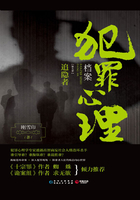June 19th.--Once safely shut into my own room, I opened these pages, and prepared to go on with that part of the day's record which was still left to write.
For ten minutes or more I sat idle, with the pen in my hand, thinking over the events of the last twelve hours. When I at last addressed myself to my task, I found a difficulty in proceeding with it which I had never experienced before. In spite of my efforts to fix my thoughts on the matter in hand, they wandered away with the strangest persistency in the one direction of Sir Percival and the Count, and all the interest which I tried to concentrate on my journal centred instead in that private interview between them which had been put off all through the day, and which was now to take place in the silence and solitude of the night.
In this perverse state of my mind, the recollection of what had passed since the morning would not come back to me, and there was no resource but to close my journal and to get away from it for a little while.
I opened the door which led from my bedroom into my sitting-room, and having passed through, pulled it to again, to prevent any accident in case of draught with the candle left on the dressing-table. My sitting-room window was wide open, and I leaned out listlessly to look at the night.
It was dark and quiet. Neither moon nor stars were visible. There was a smell like rain in the still, heavy air, and I put my hand out of window. No. The rain was only threatening, it had not come yet.
I remained leaning on the window-sill for nearly a quarter of an hour, looking out absently into the black darkness, and hearing nothing, except now and then the voices of the servants, or the distant sound of a closing door, in the lower part of the house.
Just as I was turning away wearily from the window to go back to the bedroom and make a second attempt to complete the unfinished entry in my journal, I smelt the odour of tobacco-smoke stealing towards me on the heavy night air. The next moment I saw a tiny red spark advancing from the farther end of the house in the pitch darkness. I heard no footsteps, and I could see nothing but the spark. It travelled along in the night, passed the window at which I was standing, and stopped opposite my bedroom window, inside which I had left the light burning on the dressing-table.
The spark remained stationary for a moment, then moved back again in the direction from which it had advanced. As I followed its progress I saw a second red spark, larger than the first, approaching from the distance. The two met together in the darkness. Remembering who smoked cigarettes and who smoked cigars, I inferred immediately that the Count had come out first to look and listen under my window, and that Sir Percival had afterwards joined him. They must both have been walking on the lawn--or I should certainly have heard Sir Percival's heavy footfall, though the Count's soft step might have escaped me, even on the gravel walk.
I waited quietly at the window, certain that they could neither of them see me in the darkness of the room.
"What's the matter?" I heard Sir Percival say in a low voice. "Why don't you come in and sit down?"
"I want to see the light out of that window," replied the Count softly.
"What harm does the light do?"
"It shows she is not in bed yet. She is sharp enough to suspect something, and bold enough to come downstairs and listen, if she can get the chance. Patience, Percival--patience."
"Humbug! You're always talking of patience."
"I shall talk of something else presently. My good friend, you are on the edge of your domestic precipice, and if I let you give the women one other chance, on my sacred word of honour they will push you over it!"
"What the devil do you mean?"
"We will come to our explanations, Percival, when the light is out of that window, and when I have had one little look at the rooms on each side of the library, and a peep at the staircase as well."
They slowly moved away, and the rest of the conversation between them (which had been conducted throughout in the same low tones) ceased to be audible. It was no matter. I had heard enough to determine me on justifying the Count's opinion of my sharpness and my courage. Before the red sparks were out of sight in the darkness I had made up my mind that there should be a listener when those two men sat down to their talk--and that the listener, in spite of all the Count's precautions to the contrary, should be myself. I wanted but one motive to sanction the act to my own conscience, and to give me courage enough for performing it--and that motive I had. Laura's honour, Laura's happiness--Laura's life itself--might depend on my quick ears and my faithful memory to-night.
I had heard the Count say that he meant to examine the rooms on each side of the library, and the staircase as well, before he entered on any explanation with Sir Percival. This expression of his intentions was necessarily sufficient to inform me that the library was the room in which he proposed that the conversation should take place. The one moment of time which was long enough to bring me to that conclusion was also the moment which showed me a means of baffling his precautions--or, in other words, of hearing what he and Sir Percival said to each other, without the risk of descending at all into the lower regions of the house.
In speaking of the rooms on the ground floor I have mentioned incidentally the verandah outside them, on which they all opened by means of French windows, extending from the cornice to the floor. The top of this verandah was flat, the rain-water being carried off from it by pipes into tanks which helped to supply the house. On the narrow leaden roof, which ran along past the bedrooms, and which was rather less, I should think, than three feet below the sills of the window, a row of flower-pots was ranged, with wide intervals between each pot--the whole being protected from falling in high winds by an ornamental iron railing along the edge of the roof.
The plan which had now occurred to me was to get out at my sitting-room window on to this roof, to creep along noiselessly till I reached that part of it which was immediately over the library window, and to crouch down between the flower-pots, with my ear against the outer railing. If Sir Percival and the Count sat and smoked to-night, as I had seen them sitting and smoking many nights before, with their chairs close at the open window, and their feet stretched on the zinc garden seats which were placed under the verandah, every word they said to each other above a whisper (and no long conversation, as we all know by experience, can be carried on in a whisper) must inevitably reach my ears. If, on the other hand, they chose to-night to sit far back inside the room, then the chances were that I should hear little or nothing--and in that case, I must run the far more serious risk of trying to outwit them downstairs.
Strongly as I was fortified in my resolution by the desperate nature of our situation, I hoped most fervently that I might escape this last emergency. My courage was only a woman's courage after all, and it was very near to failing me when I thought of trusting myself on the ground floor, at the dead of night, within reach of Sir Percival and the Count.
I went softly back to my bedroom to try the safer experiment of the verandah roof first.
A complete change in my dress was imperatively necessary for many reasons. I took off my silk gown to begin with, because the slightest noise from it on that still night might have betrayed me. I next removed the white and cumbersome parts of my underclothing, and replaced them by a petticoat of dark flannel. Over this I put my black travelling cloak, and pulled the hood on to my head. In my ordinary evening costume I took up the room of three men at least. In my present dress, when it was held close about me, no man could have passed through the narrowest spaces more easily than I. The little breadth left on the roof of the verandah, between the flower-pots on one side and the wall and the windows of the house on the other, made this a serious consideration. If I knocked anything down, if I made the least noise, who could say what the consequences might be?
I only waited to put the matches near the candle before I extinguished it, and groped my way back into the sitting-room, I locked that door, as I had locked my bedroom door--then quietly got out of the window, and cautiously set my feet on the leaden roof of the verandah.
My two rooms were at the inner extremity of the new wing of the house in which we all lived, and I had five windows to pass before I could reach the position it was necessary to take up immediately over the library. The first window belonged to a spare room which was empty. The second and third windows belonged to Laura's room. The fourth window belonged to Sir Percival's room. The fifth belonged to the Countess's room. The others, by which it was not necessary for me to pass, were the windows of the Count's dressing-room, of the bathroom, and of the second empty spare room.
No sound reached my ears--the black blinding darkness of the night was all round me when I first stood on the verandah, except at that part of it which Madame Fosco's window overlooked. There, at the very place above the library to which my course was directed--there I saw a gleam of light! The Countess was not yet in bed.
It was too late to draw back--it was no time to wait. I determined to go on at all hazards, and trust for security to my own caution and to the darkness of the night. "For Laura's sake!" I thought to myself, as I took the first step forward on the roof, with one hand holding my cloak close round me, and the other groping against the wall of the house. It was better to brush close by the wall than to risk striking my feet against the flower-pots within a few inches of me, on the other side.
I passed the dark window of the spare room, trying the leaden roof at each step with my foot before I risked resting my weight on it. I passed the dark windows of Laura's room ("God bless her and keep her to-night!"). I passed the dark window of Sir Percival's room. Then I waited a moment, knelt down with my hands to support me, and so crept to my position, under the protection of the low wall between the bottom of the lighted window and the verandah roof.
When I ventured to look up at the window itself I found that the top of it only was open, and that the blind inside was drawn down. While I was looking I saw the shadow of Madame Fosco pass across the white field of the blind--then pass slowly back again. Thus far she could not have heard me, or the shadow would surely have stopped at the blind, even if she had wanted courage enough to open the window and look out?
I placed myself sideways against the railing of the verandah--first ascertaining, by touching them, the position of the flower-pots on either side of me. There was room enough for me to sit between them and no more. The sweet-scented leaves of the flower on my left hand just brushed my cheek as I lightly rested my head against the railing.
The first sounds that reached me from below were caused by the opening or closing (most probably the latter) of three doors in succession--the doors, no doubt, leading into the hall and into the rooms on each side of the library, which the Count had pledged himself to examine. The first object that I saw was the red spark again travelling out into the night from under the verandah, moving away towards my window, waiting a moment, and then returning to the place from which it had set out.
"The devil take your restlessness! When do you mean to sit down?" growled Sir Percival's voice beneath me.
"Ouf! How hot it is!" said the Count, sighing and puffing wearily.
His exclamation was followed by the scraping of the garden chairs on the tiled pavement under the verandah--the welcome sound which told me they were going to sit close at the window as usual. So far the chance was mine. The clock in the turret struck the quarter to twelve as they settled themselves in their chairs. I heard Madame Fosco through the open window yawning, and saw her shadow pass once more across the white field of the blind.
Meanwhile, Sir Percival and the Count began talking together below, now and then dropping their voices a little lower than usual, but never sinking them to a whisper. The strangeness and peril of my situation, the dread, which I could not master, of Madame Fosco's lighted window, made it difficult, almost impossible, for me, at first, to keep my presence of mind, and to fix my attention solely on the conversation beneath. For some minutes I could only succeed in gathering the general substance of it. I understood the Count to say that the one window alight was his wife's, that the ground floor of the house was quite clear, and that they might now speak to each other without fear of accidents. Sir Percival merely answered by upbraiding his friend with having unjustifiably slighted his wishes and neglected his interests all through the day. The Count thereupon defended himself by declaring that he had been beset by certain troubles and anxieties which had absorbed all his attention, and that the only safe time to come to an explanation was a time when they could feel certain of being neither interrupted nor overheard. "We are at a serious crisis in our affairs, Percival," he said, "and if we are to decide on the future at all, we must decide secretly to-night."
That sentence of the Count's was the first which my attention was ready enough to master exactly as it was spoken. From this point, with certain breaks and interruptions, my whole interest fixed breathlessly on the conversation, and I followed it word for word.
"Crisis?" repeated Sir Percival. "It's a worse crisis than you think for, I can tell you."
"So I should suppose, from your behaviour for the last day or two," returned the other coolly. "But wait a little. Before we advance to what I do not know, let us be quite certain of what I do know. Let us first see if I am right about the time that is past, before I make any proposal to you for the time that is to come."
"Stop till I get the brandy and water. Have some yourself."
"Thank you, Percival. The cold water with pleasure, a spoon, and the basin of sugar. Eau sucree, my friend--nothing more."
"Sugar-and-water for a man of your age!--There! Mix your sickly mess. You foreigners are all alike."
"Now listen, Percival. I will put our position plainly before you, as I understand it, and you shall say if I am right or wrong. You and I both came back to this house from the Continent with our affairs very seriously embarrassed--"
"Cut it short! I wanted some thousands and you some hundreds, and without the money we were both in a fair way to go to the dogs together. There's the situation. Make what you can of it. Go on."
"Well, Percival, in your own solid English words, you wanted some thousands and I wanted some hundreds, and the only way of getting them was for you to raise the money for your own necessity (with a small margin beyond for my poor little hundreds) by the help of your wife. What did I tell you about your wife on our way to England?--and what did I tell you again when we had come here, and when I had seen for myself the sort of woman Miss Halcombe was?"
"How should I know? You talked nineteen to the dozen, I suppose, just as usual."
"I said this: Human ingenuity, my friend, has hitherto only discovered two ways in which a man can manage a woman. One way is to knock her down--a method largely adopted by the brutal lower orders of the people, but utterly abhorrent to the refined and educated classes above them. The other way (much longer, much more difficult, but in the end not less certain) is never to accept a provocation at a woman's hands. It holds with animals, it holds with children, and it holds with women, who are nothing but children grown up. Quiet resolution is the one quality the animals, the children, and the women all fail in. If they can once shake this superior quality in their master, they get the better of him. If they can never succeed in disturbing it, he gets the better of them. I said to you, remember that plain truth when you want your wife to help you to the money. I said, remember it doubly and trebly in the presence of your wife's sister, Miss Halcombe. Have you remembered it? Not once in all the implications that have twisted themselves about us in this house. Every provocation that your wife and her sister could offer to you, you instantly accepted from them. Your mad temper lost the signature to the deed, lost the ready money, set Miss Halcombe writing to the lawyer for the first time."
"First time! Has she written again?"
"Yes, she has written again to-day."
A chair fell on the pavement of the verandah--fell with a crash, as if it had been kicked down.
It was well for me that the Count's revelation roused Sir Percival's anger as it did. On hearing that I had been once more discovered I started so that the railing against which I leaned cracked again. Had he followed me to the inn? Did he infer that I must have given my letters to Fanny when I told him I had none for the post-bag. Even if it was so, how could he have examined the letters when they had gone straight from my hand to the bosom of the girl's dress?
"Thank your lucky star," I heard the Count say next, "that you have me in the house to undo the harm as fast as you do it. Thank your lucky star that I said No when you were mad enough to talk of turning the key to-day on Miss Halcombe, as you turned it in your mischievous folly on your wife. Where are your eyes? Can you look at Miss Halcombe and not see that she has the foresight and the resolution of a man? With that woman for my friend I would snap these fingers of mine at the world. With that woman for my enemy, I, with all my brains and experience--I, Fosco, cunning as the devil himself, as you have told me a hundred times--I walk, in your English phrase, upon egg-shells! And this grand creature--I drink her health in my sugar-and-water--this grand creature, who stands in the strength of her love and her courage, firm as a rock, between us two and that poor, flimsy, pretty blonde wife of yours--this magnificent woman, whom I admire with all my soul, though I oppose her in your interests and in mine, you drive to extremities as if she was no sharper and no bolder than the rest of her sex. Percival! Percival! You deserve to fail, and you have failed."
There was a pause. I write the villain's words about myself because I mean to remember them--because I hope yet for the day when I may speak out once for all in his presence, and cast them back one by one in his teeth.
Sir Percival was the first to break the silence again.
"Yes, yes, bully and bluster as much as you like," he said sulkily; "the difficulty about the money is not the only difficulty. You would be for taking strong measures with the women yourself--if you knew as much as I do."
"We will come to that second difficulty all in good time," rejoined the Count. "You may confuse yourself, Percival, as much as you please, but you shall not confuse me. Let the question of the money be settled first. Have I convinced your obstinacy? Have I shown you that your temper will not let you help yourself?--or must I go back, and (as you put it in your dear straightforward English) bully and bluster a little more?"
"Pooh! It's easy enough to grumble at me. Say what is to be done--that's a little harder."
"Is it? Bah! This is what is to be done: You give up all direction in the business from to-night--you leave it for the future in my hands only. I am talking to a Practical British man--ha? Well, Practical, will that do for you?"
"What do you propose if I leave it all to you?"
"Answer me first. Is it to be in my hands or not?"
"Say it is in your hands--what then?"
"A few questions, Percival, to begin with. I must wait a little yet, to let circumstances guide me, and I must know, in every possible way, what those circumstances are likely to be. There is no time to lose. I have told you already that Miss Halcombe has written to the lawyer to-day for the second time."
"How did you find it out? What did she say?"
"If I told you, Percival, we should only come back at the end to where we are now. Enough that I have found it out--and the finding has caused that trouble and anxiety which made me so inaccessible to you all through to-day. Now, to refresh my memory about your affairs--it is some time since I talked them over with you. The money has been raised, in the absence of your wife's signature, by means of bills at three months--raised at a cost that makes my poverty-stricken foreign hair stand on end to think of it! When the bills are due, is there really and truly no earthly way of paying them but by the help of your wife?"
"None."
"What! You have no money at the bankers?"
"A few hundreds, when I want as many thousands."
"Have you no other security to borrow upon?"
"Not a shred."
"What have you actually got with your wife at the present moment?"
"Nothing but the interest of her twenty thousand pounds--barely enough to pay our daily expenses."
"What do you expect from your wife?"
"Three thousand a year when her uncle dies."
"A fine fortune, Percival. What sort of a man is this uncle? Old?"
"No--neither old nor young."
"A good-tempered, freely-living man? Married? No--I think my wife told me, not married."
"Of course not. If he was married, and had a son, Lady Glyde would not be next heir to the property. I'll tell you what he is. He's a maudlin, twaddling, selfish fool, and bores everybody who comes near him about the state of his health."
"Men of that sort, Percival, live long, and marry malevolently when you least expect it. I don't give you much, my friend, for your chance of the three thousand a year. Is there nothing more that comes to you from your wife?"
"Nothing."
"Absolutely nothing?"
"Absolutely nothing--except in case of her death."
"Aha! In the case of her death."
There was another pause. The Count moved from the verandah to the gravel walk outside. I knew that he had moved by his voice. "The rain has come at last," I heard him say. It had come. The state of my cloak showed that it had been falling thickly for some little time.
The Count went back under the verandah--I heard the chair creak beneath his weight as he sat down in it again.
"Well, Percival," he said, "and in the case of Lady Glyde's death, what do you get then?"
"If she leaves no children--"
"Which she is likely to do?"
"Which she is not in the least likely to do--"
"Yes?"
"Why, then I get her twenty thousand pounds."
"Paid down?"
"Paid down."
They were silent once more. As their voices ceased Madame Fosco's shadow darkened the blind again. Instead of passing this time, it remained, for a moment, quite still. I saw her fingers steal round the corner of the blind, and draw it on one side. The dim white outline of her face, looking out straight over me, appeared behind the window. I kept still, shrouded from head to foot in my black cloak. The rain, which was fast wetting me, dripped over the glass, blurred it, and prevented her from seeing anything. "More rain!" I heard her say to herself. She dropped the blind, and I breathed again freely.
The talk went on below me, the Count resuming it this time.
"Percival! Do you care about your wife?"
"Fosco! That's rather a downright question."
"I am a downright man, and I repeat it."
"Why the devil do you look at me in that way?"
"You won't answer me? Well, then, let us say your wife dies before the summer is out--"
"Drop it, Fosco!"
"Let us say your wife dies--"
"Drop it, I tell you!"
"In that case, you would gain twenty thousand pounds, and you would lose--"
"I should lose the chance of three thousand a year."
"The remote chance, Percival--the remote chance only. And you want money, at once. In your position the gain is certain--the loss doubtful."
"Speak for yourself as well as for me. Some of the money I want has been borrowed for you. And if you come to gain, my wife's death would be ten thousand pounds in your wife's pocket. Sharp as you are, you seem to have conveniently forgotten Madame Fosco's legacy. Don't look at me in that way! I won't have it! What with your looks and your questions, upon my soul, you make my flesh creep!"
"Your flesh? Does flesh mean conscience in English? I speak of your wife's death as I speak of a possibility. Why not? The respectable lawyers who scribble-scrabble your deeds and your wills look the deaths of living people in the face. Do lawyers make your flesh creep? Why should I? It is my business to-night to clear up your position beyond the possibility of mistake, and I have now done it. Here is your position. If your wife lives, you pay those bills with her signature to the parchment. If your wife dies, you pay them with her death."
As he spoke the light in Madame Fosco's room was extinguished, and the whole second floor of the house was now sunk in darkness.
"Talk! Talk!" grumbled Sir Percival. "One would think, to hear you, that my wife's signature to the deed was got already."
"You have left the matter in my hands," retorted the Count, "and I have more than two months before me to turn round in. Say no more about it, if you please, for the present. When the bills are due, you will see for yourself if my 'talk! Talk!' is worth something, or if it is not. And now, Percival, having done with the money matters for to-night, I can place my attention at your disposal, if you wish to consult me on that second difficulty which has mixed itself up with our little embarrassments, and which has so altered you for the worse, that I hardly know you again. Speak, my friend--and pardon me if I shock your fiery national tastes by mixing myself a second glass of sugar-and-water."
"It's very well to say speak," replied Sir Percival, in a far more quiet and more polite tone than he had yet adopted, "but it's not so easy to know how to begin."
"Shall I help you?" suggested the Count. "Shall I give this private difficulty of yours a name? What if I call it--Anne Catherick?"
"Look here, Fosco, you and I have known each other for a long time, and if you have helped me out of one or two scrapes before this, I have done the best I could to help you in return, as far as money would go. We have made as many friendly sacrifices, on both sides, as men could, but we have had our secrets from each other, of course--haven't we?"
"You have had a secret from me, Percival. There is a skeleton in your cupboard here at Blackwater Park that has peeped out in these last few days at other people besides yourself."
"Well, suppose it has. If it doesn't concern you, you needn't be curious about it, need you?"
"Do I look curious about it?"
"Yes, you do."
"So! So! My face speaks the truth, then? What an immense foundation of good there must be in the nature of a man who arrives at my age, and whose face has not yet lost the habit of speaking the truth!--Come, Glyde! let us be candid one with the other. This secret of yours has sought me: I have not sought it. Let us say I am curious--do you ask me, as your old friend, to respect your secret, and to leave it, once for all, in your own keeping?"
"Yes--that's just what I do ask."
"Then my curiosity is at an end. It dies in me from this moment."
"Do you really mean that?"
"What makes you doubt me?"
"I have had some experience, Fosco, of your roundabout ways, and I am not so sure that you won't worm it out of me after all."
The chair below suddenly creaked again--I felt the trellis-work pillar under me shake from top to bottom. The Count had started to his feet, and had struck it with his hand in indignation.
"Percival! Percival!" he cried passionately, "do you know me no better than that? Has all your experience shown you nothing of my character yet? I am a man of the antique type! I am capable of the most exalted acts of virtue--when I have the chance of performing them. It has been the misfortune of my life that I have had few chances. My conception of friendship is sublime! Is it my fault that your skeleton has peeped out at me? Why do I confess my curiosity? You poor superficial Englishman, it is to magnify my own self-control. I could draw your secret out of you, if I liked, as I draw this finger out of the palm of my hand--you know I could! But you have appealed to my friendship, and the duties of friendship are sacred to me. See! I trample my base curiosity under my feet. My exalted sentiments lift me above it. Recognise them, Percival! imitate them, Percival! Shake hands--I forgive you."
His voice faltered over the last words--faltered, as if he were actually shedding tears!
Sir Percival confusedly attempted to excuse himself, but the Count was too magnanimous to listen to him.
"No!" he said. "When my friend has wounded me, I can pardon him without apologies. Tell me, in plain words, do you want my help?"
"Yes, badly enough."
"And you can ask for it without compromising yourself?"
"I can try, at any rate."
"Try, then."
"Well, this is how it stands:--I told you to-day that I had done my best to find Anne Catherick, and failed."
"Yes, you did."
"Fosco! I'm a lost man if I don't find her."
"Ha! Is it so serious as that?"
A little stream of light travelled out under the verandah, and fell over the gravel-walk. The Count had taken the lamp from the inner part of the room to see his friend clearly by the light of it.
"Yes!" he said. "Your face speaks the truth this time. Serious, indeed--as serious as the money matters themselves."
"More serious. As true as I sit here, more serious!"
The light disappeared again and the talk went on.
"I showed you the letter to my wife that Anne Catherick hid in the sand," Sir Percival continued. "There's no boasting in that letter, Fosco--she does know the Secret."
"Say as little as possible, Percival, in my presence, of the Secret. Does she know it from you?"
"No, from her mother."
"Two women in possession of your private mind--bad, bad, bad, my friend! One question here, before we go any farther. The motive of your shutting up the daughter in the asylum is now plain enough to me, but the manner of her escape is not quite so clear. Do you suspect the people in charge of her of closing their eyes purposely, at the instance of some enemy who could afford to make it worth their while?"
"No, she was the best-behaved patient they had--and, like fools, they trusted her. She's just mad enough to be shut up, and just sane enough to ruin me when she's at large--if you understand that?"
"I do understand it. Now, Percival, come at once to the point, and then I shall know what to do. Where is the danger of your position at the present moment?"
"Anne Catherick is in this neighbourhood, and in communication with Lady Glyde--there's the danger, plain enough. Who can read the letter she hid in the sand, and not see that my wife is in possession of the Secret, deny it as she may?"
"One moment, Percival. If Lady Glyde does know the Secret, she must know also that it is a compromising secret for you. As your wife, surely it is her interest to keep it?"
"Is it? I'm coming to that. It might be her interest if she cared two straws about me. But I happen to be an encumbrance in the way of another man. She was in love with him before she married me--she's in love with him now--an infernal vagabond of a drawing-master, named Hartright."
"My dear friend! What is there extraordinary in that? They are all in love with some other man. Who gets the first of a woman's heart? In all my experience I have never yet met with the man who was Number One. Number Two, sometimes. Number Three, Four, Five, often. Number one, never! He exists, of course--but I have not met with him."
"Wait! I haven't done yet. Who do you think helped Anne Catherick to get the start, when the people from the mad-house were after her? Hartright. Who do you think saw her again in Cumberland? Hartright. Both times he spoke to her alone. Stop! Don't interrupt me. The scoundrel's as sweet on my wife as she is on him. He knows the Secret, and she knows the Secret. Once let them both get together again, and it's her interest and his interest to turn their information against me."
"Gently, Percival--gently! Are you insensible to the virtue of Lady Glyde?"
"That for the virtue of Lady Glyde! I believe in nothing about her but her money. Don't you see how the case stands? She might be harmless enough by herself; but if she and that vagabond Hartright--"
"Yes, yes, I see. Where is Mr. Hartright?"
"Out of the country. If he means to keep a whole skin on his bones, I recommend him not to come back in a hurry."
"Are you sure he is out of the country?"
"Certain. I had him watched from the time he left Cumberland to the time he sailed. Oh, I've been careful, I can tell you! Anne Catherick lived with some people at a farmhouse near Limmeridge. I went there myself, after she had given me the slip, and made sure that they knew nothing. I gave her mother a form of letter to write to Miss Halcombe, exonerating me from any bad motive in putting her under restraint. I've spent, I'm afraid to say how much, in trying to trace her, and in spite of it all, she turns up here and escapes me on my own property! How do I know who else may see her, who else may speak to her? That prying scoundrel, Hartright, may come back without my knowing it, and may make use of her to-morrow--"
"Not he, Percival! While I am on the spot, and while that woman is in the neighbourhood, I will answer for our laying hands on her before Mr. Hartright--even if he does come back. I see! Yes, yes, I see! The finding of Anne Catherick is the first necessity--make your mind easy about the rest. Your wife is here, under your thumb--Miss Halcombe is inseparable from her, and is, therefore, under your thumb also--and Mr. Hartright is out of the country. This invisible Anne of yours is all we have to think of for the present. You have made your inquiries?"
"Yes. I have been to her mother, I have ransacked the village--and all to no purpose."
"Is her mother to be depended on?"
"Yes."
"She has told your secret once."
"She won't tell it again."
"Why not? Are her own interests concerned in keeping it, as well as yours?"
"Yes--deeply concerned."
"I am glad to hear it, Percival, for your sake. Don't be discouraged, my friend. Our money matters, as I told you, leave me plenty of time to turn round in, and I may search for Anne Catherick to-morrow to better purpose than you. One last question before we go to bed."
"What is it?"
"It is this. When I went to the boat-house to tell Lady Glyde that the little difficulty of her signature was put off, accident took me there in time to see a strange woman parting in a very suspicious manner from your wife. But accident did not bring me near enough to see this same woman's face plainly. I must know how to recognise our invisible Anne. What is she like?"
"Like? Come! I'll tell you in two words. She's a sickly likeness of my wife."
The chair creaked, and the pillar shook once more. The Count was on his feet again--this time in astonishment.
"What!!!" he exclaimed eagerly.
"Fancy my wife, after a bad illness, with a touch of something wrong in her head--and there is Anne Catherick for you," answered Sir Percival.
"Are they related to each other?"
"Not a bit of it."
"And yet so like?"
"Yes, so like. What are you laughing about?"
There was no answer, and no sound of any kind. The Count was laughing in his smooth silent internal way.
"What are you laughing about?" reiterated Sir Percival.
"Perhaps at my own fancies, my good friend. Allow me my Italian humour--do I not come of the illustrious nation which invented the exhibition of Punch? Well, well, well, I shall know Anne Catherick when I see her--and so enough for to-night. Make your mind easy, Percival. Sleep, my son, the sleep of the just, and see what I will do for you when daylight comes to help us both. I have my projects and my plans here in my big head. You shall pay those bills and find Anne Catherick--my sacred word of honour on it, but you shall! Am I a friend to be treasured in the best corner of your heart, or am I not? Am I worth those loans of money which you so delicately reminded me of a little while since? Whatever you do, never wound me in my sentiments any more. Recognise them, Percival! Imitate them, Percival! I forgive you again--I shake hands again. Good-night!"
Not another word was spoken. I heard the Count close the library door. I heard Sir Percival barring up the window-shutters. It had been raining, raining all the time. I was cramped by my position and chilled to the bones. When I first tried to move, the effort was so painful to me that I was obliged to desist. I tried a second time, and succeeded in rising to my knees on the wet roof.
As I crept to the wall, and raised myself against it, I looked back, and saw the window of the Count's dressing-room gleam into light. My sinking courage flickered up in me again, and kept my eyes fixed on his window, as I stole my way back, step by step, past the wall of the house.
The clock struck the quarter after one, when I laid my hands on the window-sill of my own room. I had seen nothing and heard nothing which could lead me to suppose that my retreat had been discovered.












